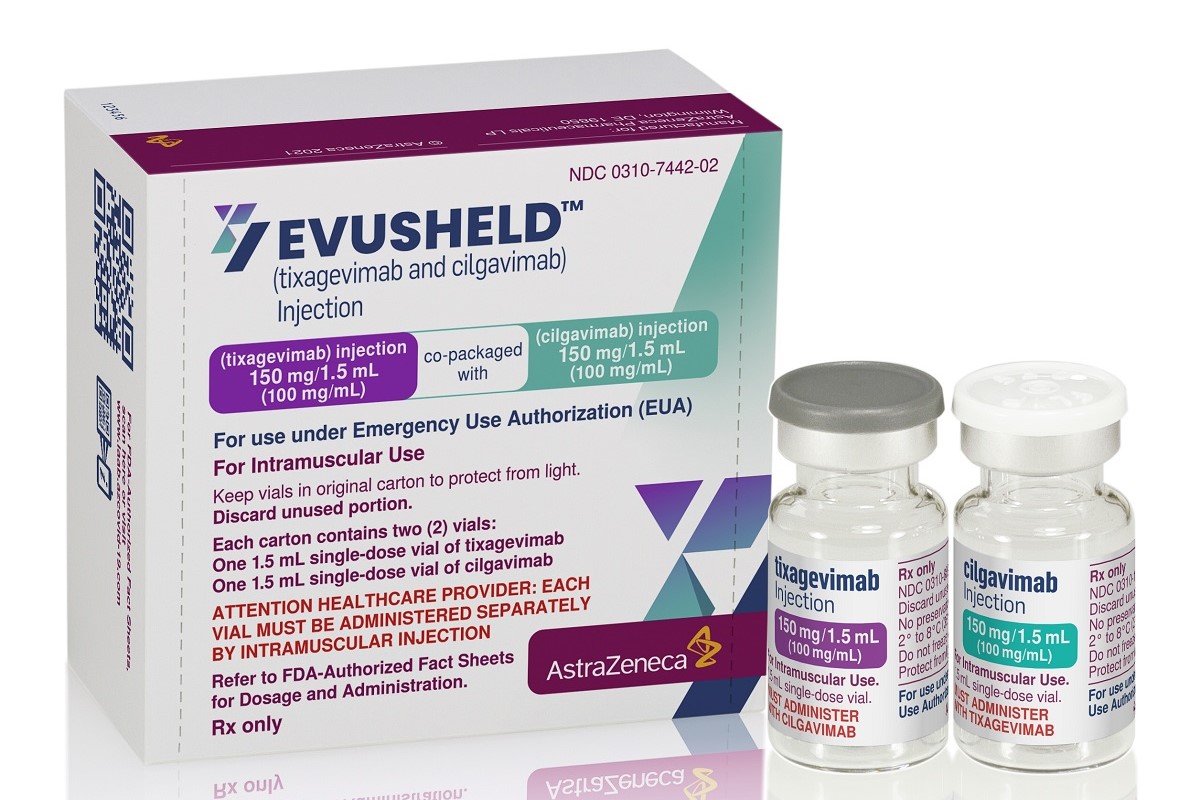
Covid-19 antibody drugs have a bad run recently, as ineffectiveness against omicron has led the FDA to revoke their emergency authorizations. AstraZeneca is posting some positive antibody news with new clinical data showing durability of the protection provided by its FDA-authorized drug cocktail.

With the Rise of AI, What IP Disputes in Healthcare Are Likely to Emerge?
Munck Wilson Mandala Partner Greg Howison shared his perspective on some of the legal ramifications around AI, IP, connected devices and the data they generate, in response to emailed questions.
In a six-month follow-up of patients treated with AstraZeneca’s drug Evusheld, results released late Wednesday showed that the antibody reduced the risk of developing symptomatic Covid-19 by 83% compared to placebo. That mark is better than the primary analysis reported last summer, when the company reported that the drug reduced the risk of infection by 77%. The median follow-up time for that primary analysis was 83 days. The latest data for the AstraZeneca drug were published in the New England Journal of Medicine.
Evusheld is a combination of two antibodies, tixagevimab and cilgavimab. Both antibodies were derived from B cells of patients recovering from Covid-19 infection. Each antibody binds to different sites on the spike protein of SARS-CoV-2, an approach that’s intended to reduce the chance that a mutation allows the virus to develop resistance to the drug. Evusheld employs proprietary AstraZeneca technology that extends the half-lives of the antibodies, enabling them to last for up to one year.
The FDA granted emergency authorization for Evusheld last December for children 12 and older as well as adults. The decision covers those who have weakened immune systems due to a medical condition or are taking medications that suppress the immune system. Also covered are those who have a history of bad reactions to components of Covid-19 vaccines. According to AstraZeneca, about 2% of the global population is considered at risk of having an inadequate response to Covid-19 vaccination and are candidates for treatment with Evusheld. This group includes those who are immunocompromised, such as cancer patients and organ transplant recipients.
AstraZeneca is evaluating Evusheld in a Phase 3 study enrolling nearly 5,200 adults in the U.S. and Europe. Through the six-month follow-up period, AstraZeneca said there were no cases of severe disease or Covid-19 related deaths in the Evusheld group. By comparison, the placebo group had five cases of severe or critical disease, seven hospitalizations, and two Covid-19-related deaths.
Evusheld continues to be well tolerated by patients and AstraZeneca reported no safety issues at the primary analysis or the six-month mark. The most common adverse event was an injection-site reaction, which occurred in 2.4% of trial participants in the Evusheld group. AstraZeneca said that additional data about how Evusheld moves throughout the body show that concentrations of the drug in the blood remain high at the six-month mark, supporting the drug’s case as a long-term protective measure.
The growing prevalence of omicron and its subvariants has led to reduced efficacy of several antibody drugs. Antibody drugs from Eli Lilly, Regeneron Pharmaceuticals, and partners Vir Biotechnology and GlaxoSmithKline have had their emergency authorizations revoked. AstraZeneca’s drug is showing signs of holding up against these newer strains. Last month, the company reported clinical data showing Evusheld retained neutralizing activity against omicron and the BA.2 subvariant.
AstraZeneca is also evaluating Evusheld as a treatment for mild-to-moderate Covid-19 in non-hospitalized patients. In preliminary Phase 3 results reported last October, the company said the drug showed a statistically significant reduction in severe Covid-19 or death compared to a placebo. The company is preparing to present full results from this study during the European Congress of Clinical Microbiology & Infectious Diseases in July. AstraZeneca said these data have also been submitted for publication in a peer-reviewed medical journal.
Photo by AstraZeneca














